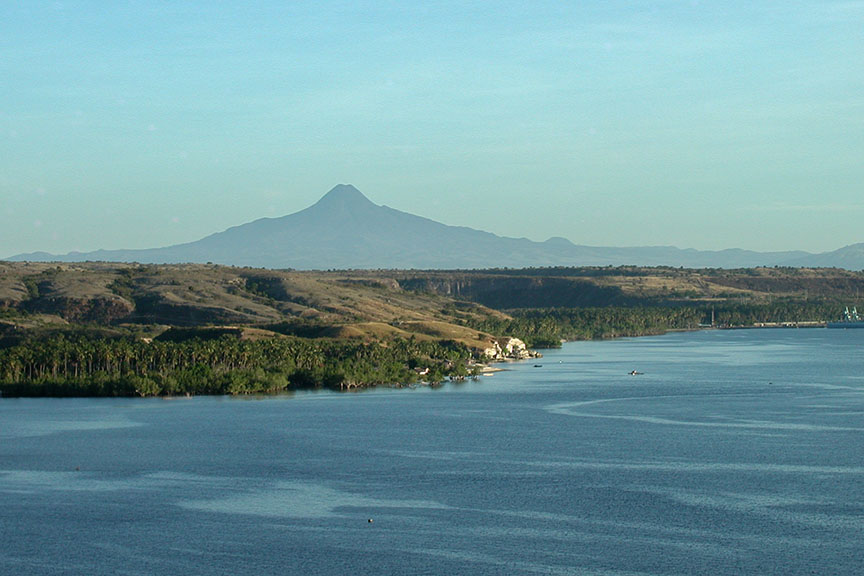GENERAL SANTOS CITY (MindaNews / 8 Feb) – Environment personnel have spotted over 300 whales and dolphins during a four-day monitoring in parts of Sarangani Bay last week.
 Sarangani Bay. MindaNews file photo by BOBBY TIMONERA
Sarangani Bay. MindaNews file photo by BOBBY TIMONERA
Joy Oloquin, area superintendent of the Sarangani Bay Protected Seascape (SBPS), said Monday the marine mammals were specially monitored in the seas off this city and Sarangani province and appeared to have been thriving in the area’s marine environment.
The marine mammal monitoring activities were conducted from Feb. 2 to 5 by joint personnel from the Department of Environment and Natural Resources (DENR)-Region 12’s conservation and development division, SBPS protected area management office, General Santos City environment and natural resources office and the Environmental Conservation and Protection Center of Sarangani.
“Food hunting and nursing of calves are the possible reasons why the whales and dolphins are in the bay,” Oloquin said in a report.
She said the team specifically spotted 20 to 30 short-finned pilot whales (Globicephala macrorhynchus), eight Risso’s dolphins, 80 to 100 Spinner dolphins and 150 to 200 Fraser’s dolphins.
Most of them were seen in various occasions in the coastal waters between Malapatan and Glan towns in Sarangani.
The latest dolphin and whale sighting in the Sarangani Bay is among the biggest reported by DENR-Region 12.
In August 2019, its monitoring team spotted around 270 of the marine mammals in different sites of the bay.
Among the threats observed by the agency to the existence of the dolphins and whales are the continuous throwing of hazardous garbage such as polyethylene terephthalate or PET bottles, cellophanes, plastic wrappers and other non-biodegradable materials.
It also noted the presence of fishing vessels conducting various activities within the bay that could harm the cetaceans and other marine organisms.
DENR-12 had previously set quarterly monitoring activities to track down developments and day-to-day undertaking of establishments within the bay.
Starting this year, Oloquin said they decided to conduct monthly marine mammal monitoring “to ensure the strict protection and conservation” of the SBPS. (MindaNews)
